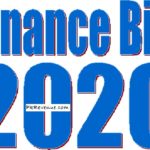ISLAMABAD: Pakistan has reintroduced advance tax on foreign payments made through credit, debit or prepaid cards. The advance tax has been revived through Finance Bill, 2022.
The country presented its federal budget 2022/2023 on June 10, 2022 and made several amendments in tax laws to broaden tax base and plug revenue leakages.
READ MORE: Exchange companies to withhold tax on payment to MTOs
The Finance Bill, 2022 proposed to reintroduce Section 236Y of the Income Tax Ordinance, 2001. The section was omitted through Finance Act, 2021.
Following is the proposed amendment in the Income Tax Ordinance, 2001:
READ MORE: Salaried persons denied adjustments against deduction
“236Y. Advance tax on persons remitting amounts abroad through credit or debit or prepaid cards.—(1) Every banking company shall collect advance tax, at the time of transfer of any sum remitted outside Pakistan, on behalf of any person who has completed a credit card or debit card or prepaid card transaction with a person outside Pakistan at the rate specified in Division XXVII of Part IV of the First Schedule.
READ MORE: New ADR mechanism introduced to facilitate taxpayers
(2) The advance tax collected under this section shall be adjustable.”
The Finance Bill 2022 proposed advance tax rate on amount remitted abroad through credit, debit or prepaid cards under section 236Y shall be 1 per cent of the gross amount remitted abroad.
READ MORE: FBR to disable mobile SIMs on non-filing of tax returns







